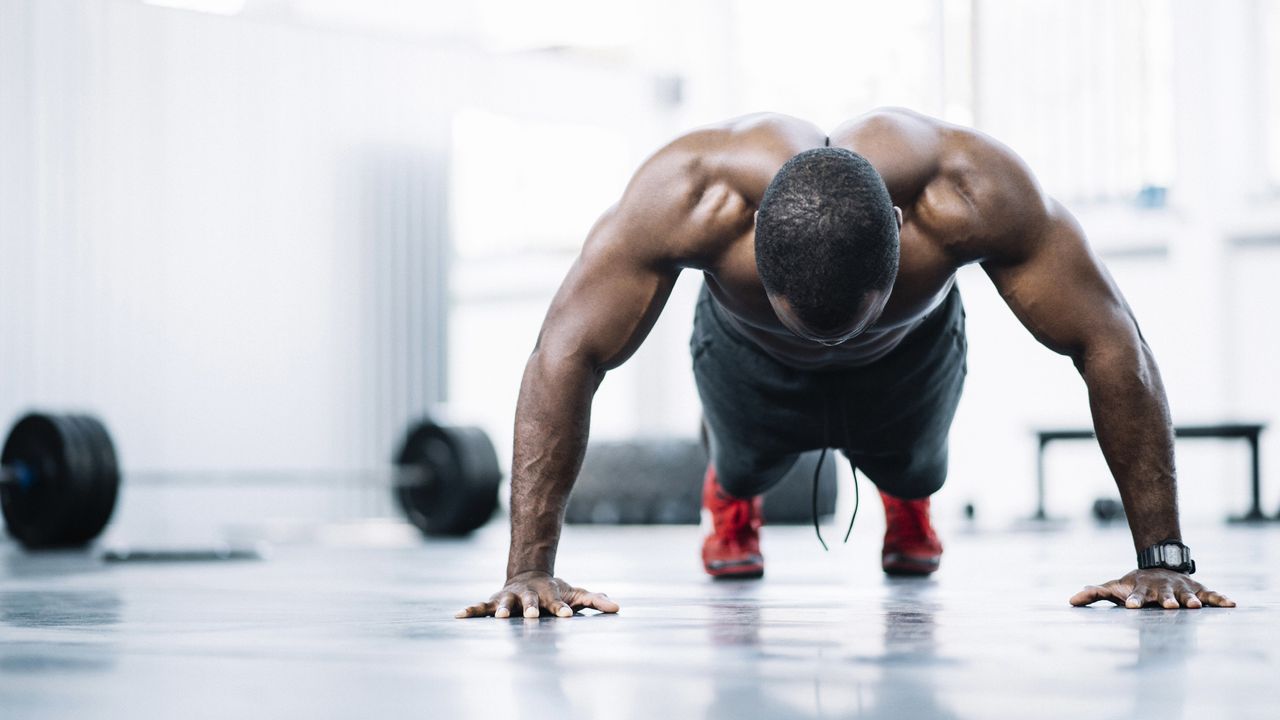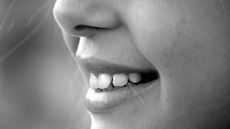

Push ups are particularly great for sculpting big arms and a broad chest, all at the same time and with the below workout tips, you'll have a chest and arms big enough to match Arnold Schwarzenegger's.
According to science, push ups (a.k.a. press ups) are equally as good for building pecs as the bench press. Pretty surprising, right? Not so much if you think about it. Using the correct form, push ups and bench presses are very similar moves and also work pretty much the same muscles.
But this begs the question: what are the best push up workouts that will build a big chest and big arms? How should you structure your press up workout in order to maximise chest muscle gains? What push up variations are the best for building pecs?
Push up workout tips: Start with the basics
First and foremost, you'll need to know how to do push ups. As in the case in most resistance training exercises, a good push up form is more important than churning out 'half-reps', so make sure your core, delts and pecs are all engaged when performing press ups. Slow, controlled reps are key to building muscle.
There are many ways to do push ups wrong, hence why we have so much literature around the subject, even here on T3. After masting the easiest push up variation, you might want to mix things up with the best push up variations you've never heard of.
Some of these include biceps push ups (a.k.a. planche push up) and forearm push ups, just to mention a couple. And just for good measure, you can try diamond push ups: they are great for building big triceps.
Best workout tips to get better at push ups
1. Do more reps
When performing resistance training with the best home weights, you want to stay within the 'hypertrophy range' which is between 8-12 reps per set. This is said to be the best build increase muscle mass, as opposed to a lower rep range that build strength and a higher rep range that build muscle endurance.
Sign up to the T3 newsletter for smarter living straight to your inbox
Get all the latest news, reviews, deals and buying guides on gorgeous tech, home and active products from the T3 experts
That said, bodyweight training is a bit different, especially push ups. Once you can do 10-12 push ups, if you stay in this range going forward, you won't see results anytime soon, or ever. Doing 20-30 or even more reps per set is advised to increase resistance and stimulate the pecs more.
2. Wear a weighted vest
You won't have to increase the rep range to infinity if you can add resistance to your push ups. Wearing a weighted vest is one way to do that. Most vests come with detachable weights which is great for progression; as we all know, the best way to build muscle and strength is to follow a progressive overload pattern in your push up training.
New to weighted vests? Check out T3's best weighted vest guide for more info.
3. Add elevation
You can add more resistance to your push ups by elevating your legs off the floor. The higher up the legs, the harder the exercise will be. You can use a chair or a weight bench for this.
It is worth mentioning that at some point, as you elevate the leg further and further up, you will end up working your shoulders more and the pecs less. Handstand push ups work the pecs very little but are excellent for the delts and the triceps.
4. Use resistance bands
Especially at the apex of the push up movement, you might find it less challenging to hold this pose; it's basically a high plank position. Resistance bands provide the most resistance when your arms are extended and as long as you don't lock your elbows, the band's resistance will work the triceps beautifully too. Even the best resistance bands are pretty cheap and can be stored wherever, ideal for smaller living spaces.
5. Look after your wrists
One of the complaints most often brought up about push ups is that it it kills the wrists and indeed, that's certainly a disadvantage over bench press. The way the hands are placed is important and so is to warm up the joints before you get down on the floor.
If you are happy to invest a little, we recommend getting a push up handle or a couple of parallettes to give your wrists a break. Using these, your hands take on a similar pose as if you were doing bench press, which is way better for wrist health. And much like resistance bands, push up handles are cheap and take up very little space.

Push up tip #6: take the right supplements
Do you need to take the best protein powder or chow down on the best protein bars or best jerky if you want to build muscle? Of course not, but all of these are convenient ways to add extra protein to your diet which is essential for muscle building and recovery.
One supplement every fitness expert recommends is creatine. One of the most scrutinised supplements of all time, creatine can help you lift more and build muscle more efficiently. Not to mention, it hasn't got any side effects and the daily dose is pretty small too (only 3-5 grams).
If you are going all out, you can also consider taking BCAAs before the workout. Branched-chain amino acids supplements are taken in order to "boost muscle growth and enhance exercise performance." According to Healthline, "your body can use BCAAs to build muscle protein and produce energy. They may also have an effect on your brain that reduces fatigue."
Best push up variations to build chest muscles
Wide push up
Diamond push ups are great for activating the triceps more but a nice wide push up will really bomb the pecs and even the serratus anterior, the muscles covering the upper part of the ribs, just under the pecs, making your chest muscles looks wider and larger in the process.
Even when you perform wide push ups, don't let your elbows flare to the sides. Keep them pointing towards you legs to reduce pressure on the shoulder joints and to apply force to the right areas, such as the pecs and the triceps.
Medicine ball push up
Just like narrow the grip bench press, the medicine ball push up works the triceps just as well as it works the pecs, but this exercise also have the added benefit of adding a lot more core activation to the mix. Using the medicine ball, your wrists are in a more natural position too.
Resistance band push up
As mentioned above, exercise bands are an inexpensive yet efficient way to add resistance to your push up training. With resistance bands, you can ensure your muscles get a good pump, even if you stay in the hypertrophy rep-range (8-12 reps per set). Make sure the band runs around the upper back and not the neck as that might result in pain rather than gains.

Matt Kollat is a journalist and content creator who works for T3.com and its magazine counterpart as an Active Editor. His areas of expertise include wearables, drones, fitness equipment, nutrition and outdoor gear. He joined T3 in 2019. His byline appears in several publications, including Techradar and Fit&Well, and more. Matt also collaborated with other content creators (e.g. Garage Gym Reviews) and judged many awards, such as the European Specialist Sports Nutrition Alliance's ESSNawards. When he isn't working out, running or cycling, you'll find him roaming the countryside and trying out new podcasting and content creation equipment.
-
 This PS5 Pro game proves the best part of next-gen isn't what you expected
This PS5 Pro game proves the best part of next-gen isn't what you expectedRay-traced reflections might be a mirage
By Max Freeman-Mills Published
-
 Oil pulling is going viral on TikTok for stopping morning breath – but does it actually work?
Oil pulling is going viral on TikTok for stopping morning breath – but does it actually work?4 hacks that prevent morning breath, according to a sleep expert
By Bethan Girdler-Maslen Published